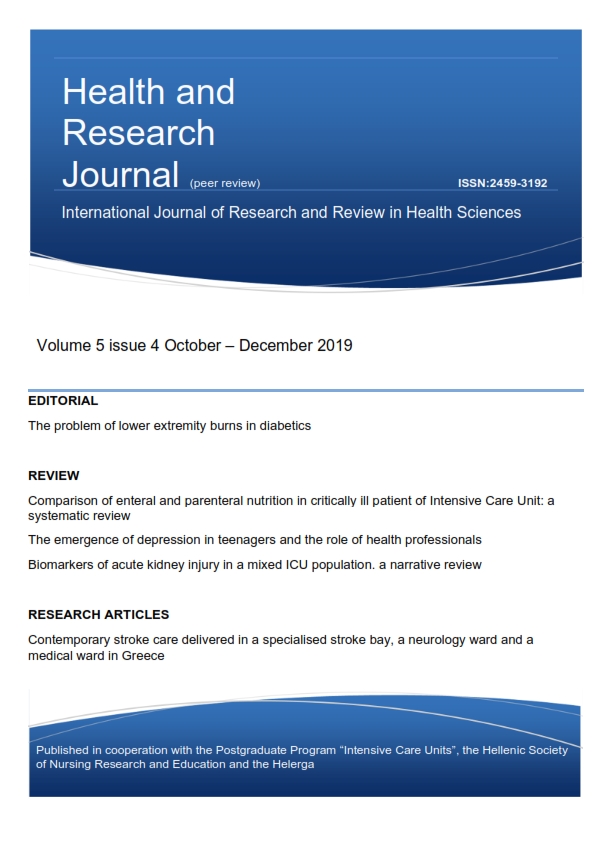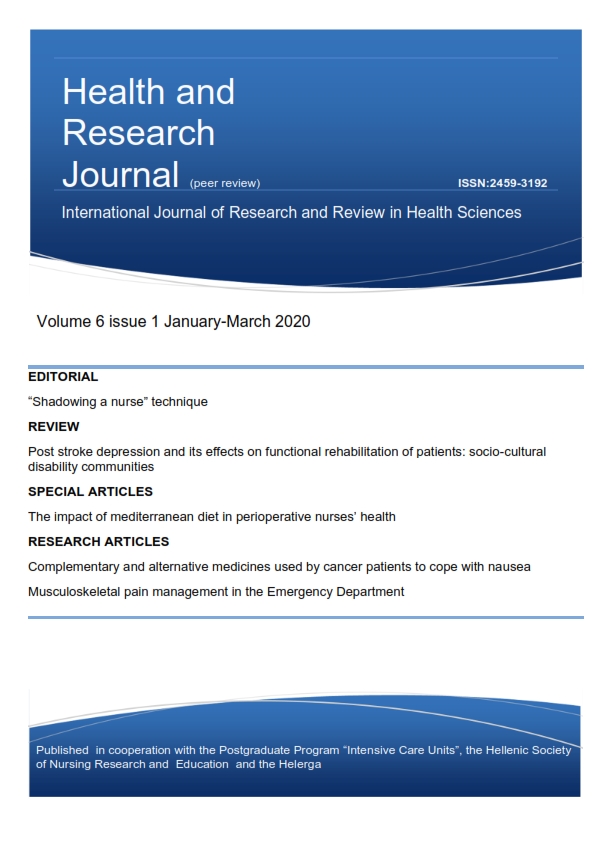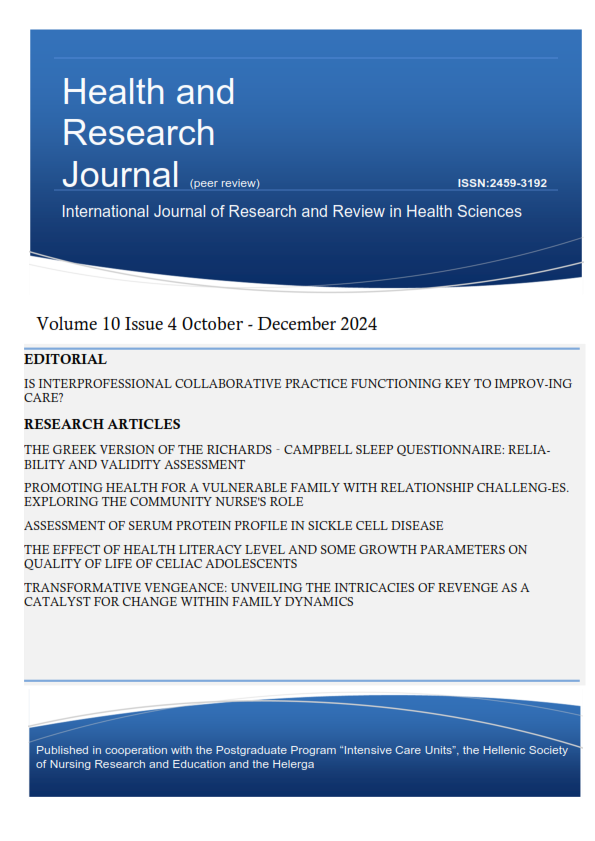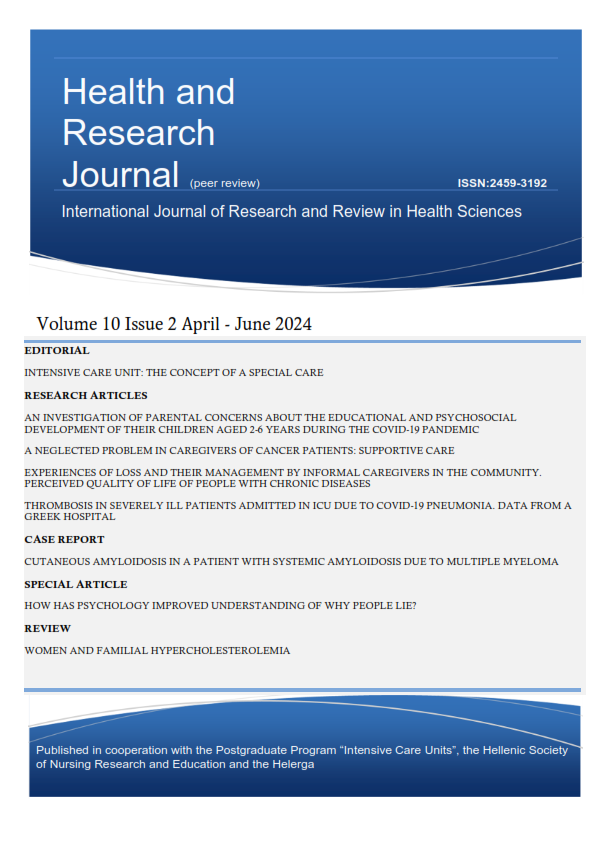Prevalence of depression in patients with cardiac insufficiency and correlation with determinants
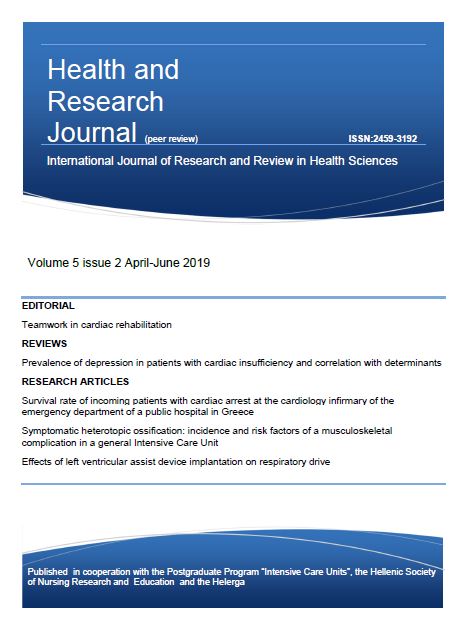
Abstract
Background: Depression is one of the major causes of morbidity and loss of productivity in the world. Regardless of age, ethnicity and gender, it is known that its impact increases after major stressful events. Other major causes are chronic diseases, such as heart failure. The condition shows greater frequency and prevalence today, because of the aging population, the growth of population dispersion and other risk factors like hypertension and diabetes as well as the increase in the life expectancy of sufferers, due to current therapeutic interventions. Thus, depression has become chronic and the challenge of fighting inevitably incurs psychosocial effects.
Aim:This research paper (systematic review) aims to investigate the prevalence of depression in patients with heart failure in association with determinants.
Method & Material: This is a systematic review. In particular, a literature search was conducted in the electronic databases ProQuest, PubMed, EBSCO and Google Scholar, using the key-words: heart failure, prevalence and depression.
Results: A total of ten surveys met the selection criteria. According to the results on the prevalence of depression, a moderate to high prevalence among patients with heart failure is presented, as well as an increased risk of mortality and clinical manifestations. Depression increases in patients with heart failure, as age, gender and race affect it similarly compared to what has been observed in the general population. The NYHA class II and III in advanced age and people with a prior history of myocardial infarction show a strong positive correlation with depression, too.
Conclusions: Mental health problems affect the entire sphere of activities of a patient. Management is feasible and guaranteed only in a controlled living environment. Nurses, having the privilege of close contact with patients, can promptly diagnose depression symptoms and intervene as members of an interdisciplinary team. In Cyprus, no other research studies exist concerning the assessment of the prevalence of depression in patients with heart failure.
Article Details
- How to Cite
-
Argyriadis, A., Nestoros, D., Gourni, M., Argyriadi, A., & Bellou – Mylona, P. (2019). Prevalence of depression in patients with cardiac insufficiency and correlation with determinants. Health & Research Journal, 5(2), 41–52. https://doi.org/10.12681/healthresj.20875
- Section
- Reviews
Copyright notice:
Authors retain copyright of their work and grant the Health and Research Journal the right of first publication.
License:
Articles are published under the Creative Commons Attribution 4.0 International License (CC BY 4.0). This license permits use, sharing, adaptation, distribution, and reproduction in any medium or format, including for commercial purposes, provided that appropriate credit is given to the author(s) and the original publication in this journal, a link to the license is provided, and any changes are indicated.
Attribution requirement:
Any reuse must include the article citation and DOI (where available), and indicate if changes were made.



